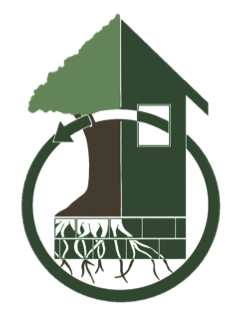DIY Rain Barrel
Last week we talked about gutter and water flow maintenance around the home, but how can we optimize our usage of rainwater? Why just let all that rainwater run off into who knows where, when we can store it and use it to get our gardens through the long, dry summer. Rain barrels are a great way keep the water your plants need through
DIY Rain Barrels
What is it?
Collects rainwater
Can include a distribution system
Food safe – if you are going to be using this water in your garden
Where to get cheap rain barrels
Kijij, marketplace, craigslist
Local food distributors (try restaurants, breweries, bakeries, bulk food suppliers)
Garbage cans!
Anything with a lid that has not been exposed to hazardous materials can be made into a rain barrel. White or transparent barrels allow sunlight to encourage algae growth. You may also need to extensively clean a second-hand barrel. Car washes often store soap in barrels, but the amount of water you need to rinse them properly almost defeats the purpose of acquiring a cheap, used rain barrel. Keep these things in mind when considering your expenses! We always say, “Buy it right or buy it twice!”
Ready to build? Just a few simple steps and you’ll be on your way
Materials Needed
Enclosed barrel/ bucket/ cistern
Two spigots per barrel
Drill & hole saw attachments
Channel locks
Mesh screen
Silicon
Overflow hose
Step 1: Clean the barrel
You want to be sure there’s no surprises or contaminates in your water supply, even if it is just for the garden.
Step 2: Mark TWO spigot locations
One near the middle for cleaner water to use throughout the season
One at least 3” from the bottom to use when draining and winterizing your barrels. Sediment will settle at the bottom of the barrel which can cloud the water and clog the spigot. This is why it’s a great idea to have two spigot locations.
Step 3: Install Spigots
Drill holes according to instructions that came with the spigot - Be sure to be as close to the bottom as possible to maximize your usable water volume
Step 4: Install downspout
Drill ~6” hole
Use silicone/caulk to install a mesh screen over the hole – fine enough to keep out mosquitos, not just debris.
Or cut your hole to exactly fit a rain barrel screen. Here’s one ready made https://www.amazon.ca/dp/B01H10JPMA?linkCode=gs2&tag=simpsp31canad-20
Step 5: Install overflow
You will need an overflow hose near the top of your barrel to prevent it from overflowing. This can also be used to connect multiple barrels in sequence. Your overflow will allow the water to either drain out, or into the next barrel when it gets full. Be sure to direct this water away from your foundation!
A garden hose should work fine for our Northern BC environment, but if you are in an area that sees a lot of rain, you will need a larger overflow hose to withstand the pressure.

